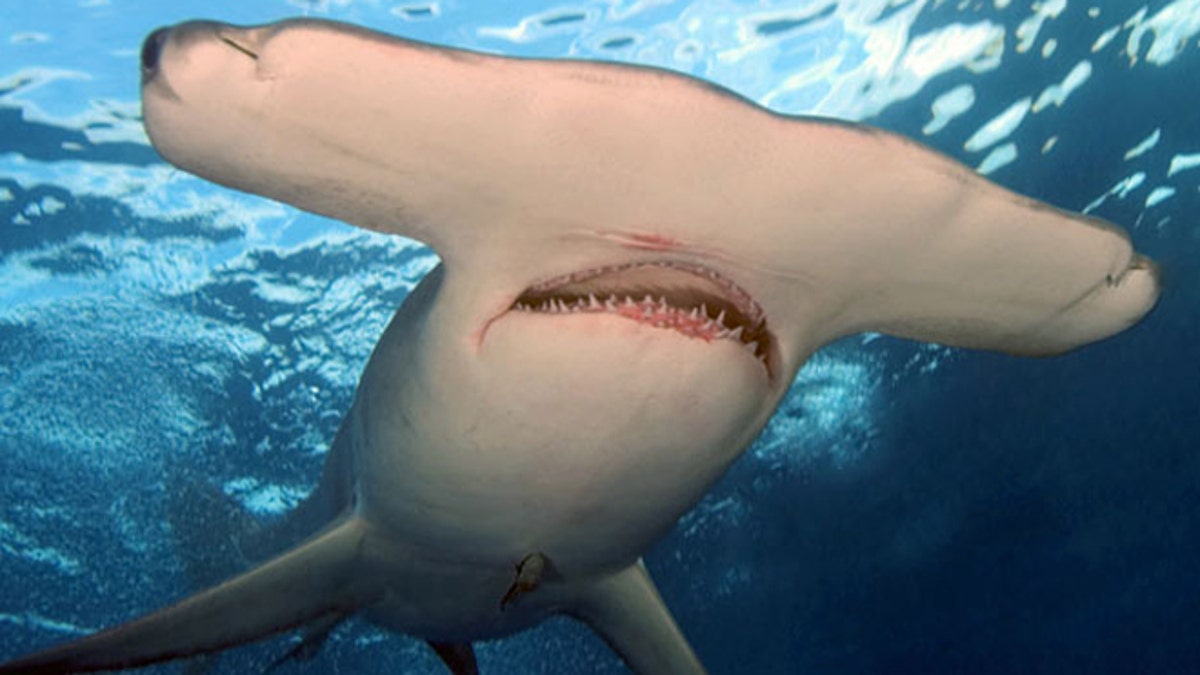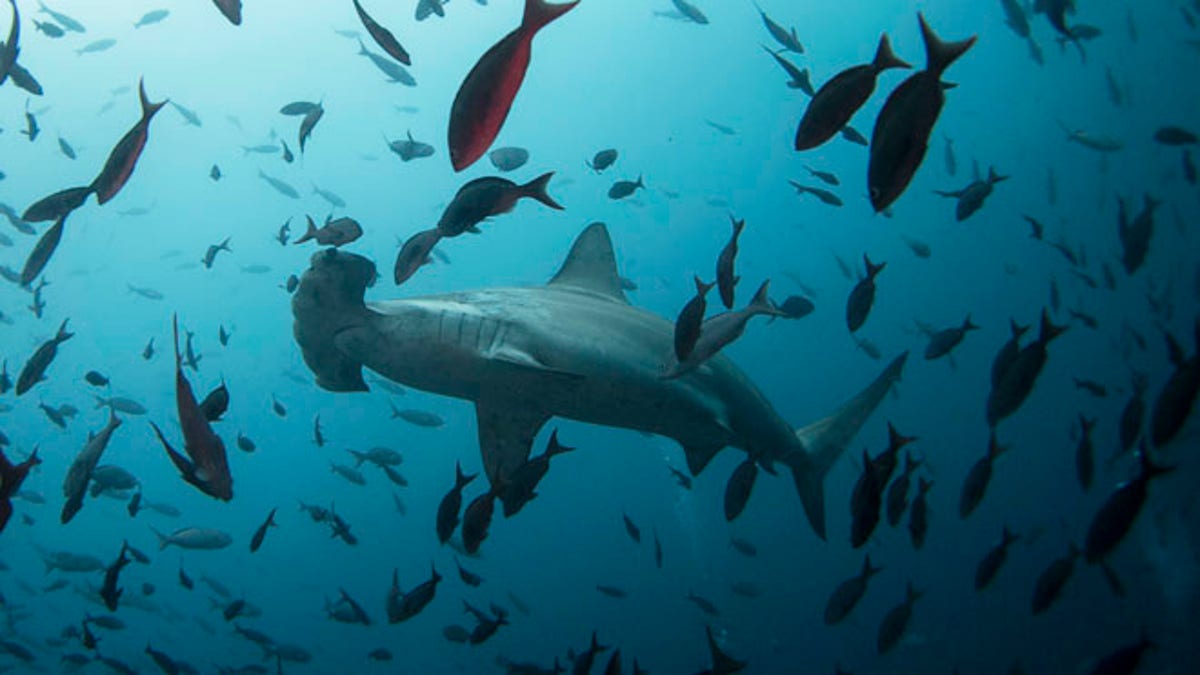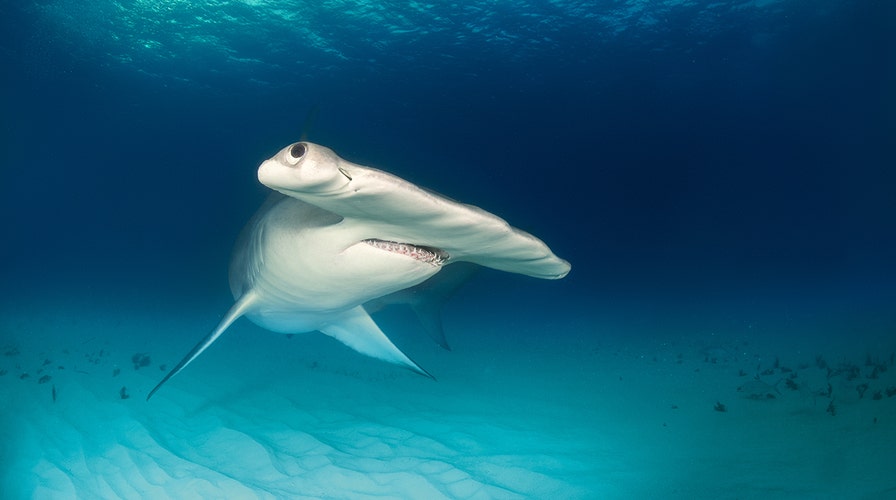Fox News Flash top headlines for July 23
Fox News Flash top headlines for July 23 are here. Check out what's clicking on Foxnews.com
A hammerhead shark, a shark that generally resides in warm, tropical waters, has been spotted off the Irish coast for the first time, baffling researchers.
Named for the distinctive shape of its head, the hammerhead was located in the Celtic Sea, approximately 100 miles southwest of Ireland, Daily Mail reports.
The encounter with the shark was brief, although the news outlet added that two marine scientists, who were close by, were able to positively identify the shark as a hammerhead, due to its unique dorsal fin.

Great hammerhead shark (Sphyrna mokarran), underwater view (iStock)
GREAT WHITE SHARKS SEEN INTERACTING FOR FIRST TIME EVER
"Found in temperate and tropical waters worldwide, far offshore and near shorelines, hammerheads are often seen in mass summer migrations seeking cooler water," National Geographic reports.
NatGeo added that although the shark is a "consummate predator," using its wide-set eyes for better visual range, they are generally harmless to humans and few attacks have been recorded.
They can range between 13 and 20 feet in length and weigh anywhere between 500 and 1,000 pounds, "although smaller sizes are more common," NatGeo noted.
Hammerheads, which are generally found in the Caribbean, often migrate to cooler seas during the summer, but never this far north. Experts believe the shark could've made its way to this part of the globe in search of food.
"I am not aware of them (hammerheads) being seen in our waters before but this sighting does not surprise me," Dr. Simon Boxall, of the Southampton Oceanography Institute, told the news outlet. "Temperatures in these waters have increased by 2.5°C over the last 20 years and more exotic species carried by the Gulf Stream are traveling further north for food."
"It could be a very lost hammerhead shark but more likely it is because our oceans are getting warmer," Boxall added. "There is no reason why more shark species like hammerheads and Great Whites can't exist in our waters."

(Reuters)
MYSTERIOUS DEEP-SEA SHARK THAT'S OLDER THAN THE DINOSAURS CAPTURED ON FILM
There are seven different species of hammerhead sharks, including the largest, the Great Hammerhead shark, which is often spotted in the Dutch Caribbean, according to the Dutch Caribbean Nature Alliance.
In addition, hammerheads are considered endangered and are on the IUCN's Red List.









































